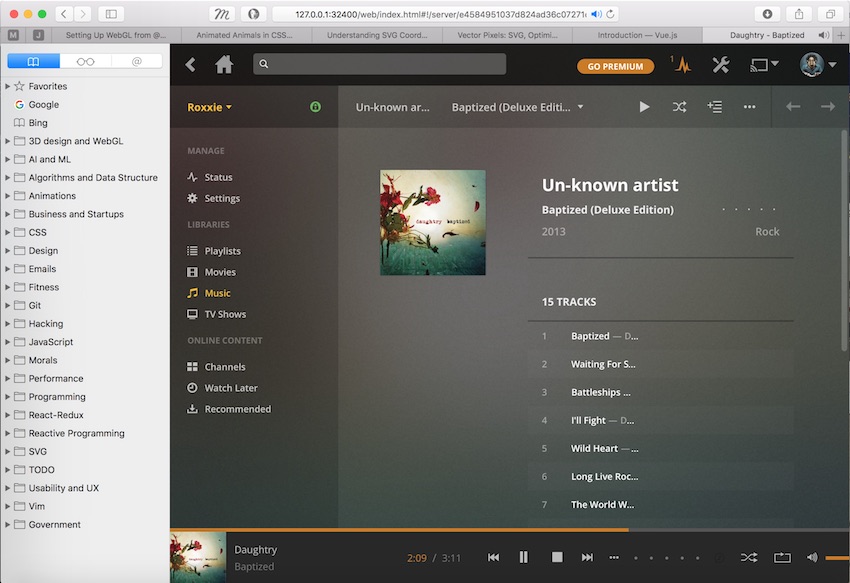A developer with many browser tabs open is a cliche. It feels inevitable to have opened tabs for articles, demos, or tools, especially in the web industry where everything is always changing and there’s usually new things to learn about.
But your life isn’t all about being a developer or whatever your job is. Admit it or not, you are affected by several other factors around you and some of these may pique your interest. Would you ignore an article that says your government is distributing a large sum of money to its citizens? I mean when you are certain it’s not a clickbait and you’ve heard people confirm it. Chances are you wouldn’t. There are more practical cases like an accident that occured at your workplace, and much more that could get you to open a browser tab to read.
The big problem however is sometimes you can only skim through articles to get the most important information and procrastinate on reading the rest. This problem is as a result of the common human behavior of poor estimation. If only you knew yourself enough to be aware that you probably would never read that article again, you would close the tab at the right time. The problem of estimation affects your work too especially when you’re a freelancer. Perhaps, if by the end of this article you can keep to less browser tabs, you just might get better at estimating more things in life.
Bookmarks are the first solution that come to mind when you try to address the problem of having too many tabs open. But having bookmarks that you never go back to is just as much a cliche as having too many tabs open. I’ve often seen native browser bookmarks, delicious, pocket, and other bookmarking tools just serve as a dump for links that’ll never be revisited and I honestly still have some of those from the past.
If you’re like me, you think of bookmarks as references you make after reading through a content, which leaves unread content not bookmarkable. And when you have a lot of work to do daily you may not be able to read every content you find interesting. Soon your browser tabs start growing and not only is it leaving you with the task to make time to read more content, it’s also eating up your system resources. Several things run on websites today that chew on your battery and memory. It could be ads or innocuous animations, and rather than realizing it’s your fault, you blame your hardware manufacturer for bad batteries.
To solve the resource consumption problem, tools like Too Many Tabs Open and OneTab have been made, but as a friend once suggested, what people may really need is a tool intelligent enough to close a tab when the probability of them being read becomes 0. But how do we get there? Maybe someone intelligent might build that soon. But while we wait, how can we solve this inundating browser tab problem?
I came up with 2 things:
- Organization
- The power of saying NO
Organization
In a previous post, I talked about the 5s methodology for productivity. Seiri is one of those 5 Japanese words and it means organization. Seiton means tidiness. Shatsuke means self-discipline. When you combine those 3, you have yourself Benjamin Franklin’s quote:
A place for everything, everything in its place
Seeing how Benjamin Franklin’s life was lived, it’s obvious how organization can help achieve a fulfilled life.
The first way to organize your bookmarks is by deciding what doesn’t go in there at all and how things are grouped in there. I love Safari bookmarks for its mode of organization and for that, Safari remains my primary browser for surfing the web.

As shown in the figure I have groups for my bookmarks and while any browser can do this, I love the aesthetic with Safari. There are however some content that wouldn’t go in those bookmarks because my brain works fine to an extent. An example is this article about JavaScript delete I was recently reading. Everything in its title makes it rememberable enough for me if I ever need to reference it. A simple web search would get me to it. I also found a really interesting post on imgur recently and I could have it bookmarked to imgur by adding it to my capacious favorites. There are other systems like this that have built-in bookmarks even if they don’t call it that.
By using these techniques you can declutter your primary bookmarks and have it keep the things that matter most. Those you’d always remember to go back to if you have to.
The power of saying NO
Saying NO this time not to humans but to articles. Evaluate an article and determine if it’s worth your reading time. Skim for information if all you need is a bit of information from it and close it. Maybe this article also wasn’t worth your time and you just wasted minutes of your life reading it and maybe not. You’re not mandated to read everything you open or see, so have some discipline around that and you’d have a happier browser life.
A good limit to set for open browser tabs is 10. No browser keeps more than 10 tabs open for up to 24 hours with me now.